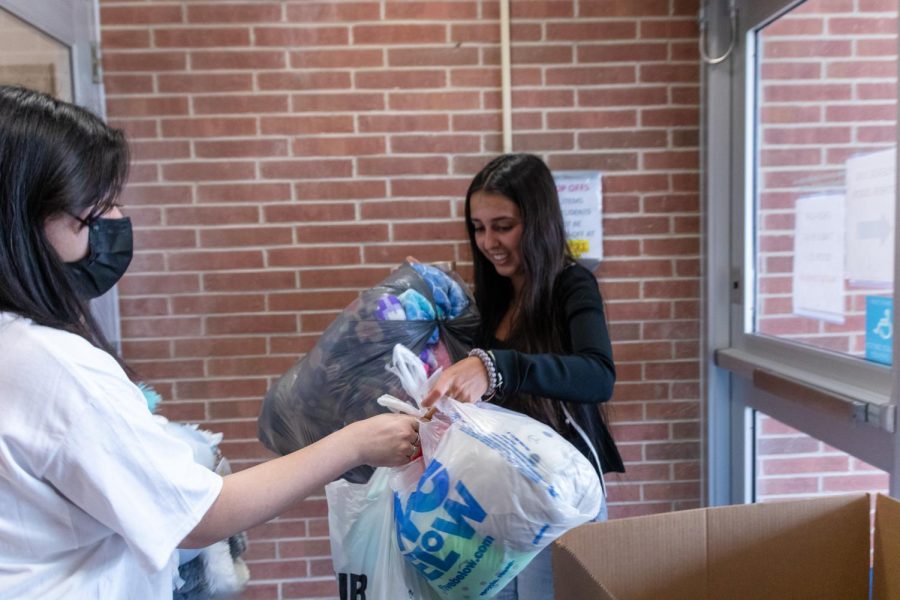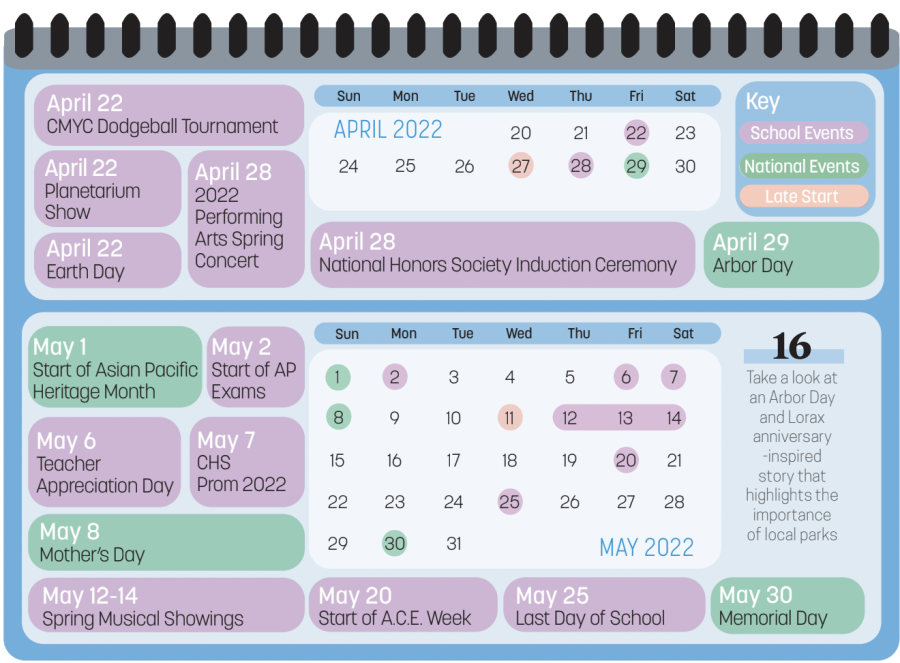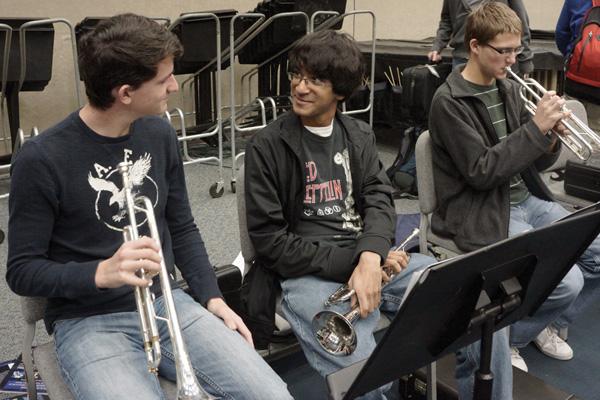
As seniors face their final semester of high school, worsening cases of ‘senioritis’ prompt new efforts to fight the epidemic from students and administrators
For senior Keshav Ramaswamy, the moment knew he had caught the bug was when he saw his schedule.
“(It) started to become more of independent studies and study halls more than required classes, and when I looked at my schedule, I only had one required class,” he said.
According to Ramaswamy, he doesn’t receive any homework in his classes, but even if it was given, he wouldn’t complete it.
“No, not even if I get a detention, I’m just going to tell the teacher that I don’t care,” he said.
As his eighth and final semester of high school rolls around, Ramaswamy, like many other seniors here, has come down with a case of senioritis, a colloquial term used to describe a condition affecting many second semester seniors. It is characterized by a decrease in effort, motivation and focus toward schoolwork, often resulting in lower grades, tardiness and general disinterest in high school.
And its influence is growing, according to student body president Chris Johnson, who admits that he has felt the tug of senioritis as well.
“It’s a big problem, and it gets worse throughout the year,” he said. “You can’t really deny the fact that it exists, because as kids get into college and get their acceptance letters, their focus starts shifting toward the next step.”
In its efforts to raise student engagement across the school, the administration has also assessed the problem of senioritis and possibilities of combating the condition. One proposal, announced to teachers Oct. 25, introduces the idea of a reformatted senior schedule that closely mirrors that of a collegiate environment.
Although the proposed schedule has to traverse several hurdles, including Department of Education waivers and high-performing school status, Williams is confident that the new format, if implemented, would help address some of the engagement problems caused in part by senioritis.
“When you’re a senior, you’ve done this; you’ve done that, so it’ll be different. (The proposed schedule) won’t change the fact that you know you’re going to Dartmouth next year,” Williams said. “But I think what it will do is make your senior year more challenging if you participate, or more challenging for more kids…It’ll be a different schedule, which I think will be unique.”
 The proposed schedule would help students like Ramaswamy who can put in much less effort during senior year because of an less challenging course load.
The proposed schedule would help students like Ramaswamy who can put in much less effort during senior year because of an less challenging course load.
“(On blue days), I have construction, which I’m going to drop for another independent study, (then I’m) going to computer programming with a really good friend of mine who I just play around with the entire time, then I have band,” Ramaswamy said, mentioning his band class is “a lot more of a blow-off.”
 Finally, Ramaswamy ends the day with an independent study. “So, in that, there’s not even one required class that I have to take,” he said.
Finally, Ramaswamy ends the day with an independent study. “So, in that, there’s not even one required class that I have to take,” he said.
Principal John Williams sees senioritis such as Ramaswamy’s as a natural process, which makes it all the more difficult to tackle. As seniors finalize their plans for the future, they will naturally shift their focus to college, military service, careers or whatever is on their agenda.
Consequently, their interest in high school wanes, and the seeds of senioritis have taken root.
“If I knew next year I would be working at a different school, maybe not now, but eventually my attention moves to my new job and challenges that I’ll deal with there,” Williams said. “That means less attention here.”
For that reason, feelings of senioritis in some form or another easily spread, though Ramaswamy said that he doesn’t foresee any ill effect it will have.
“I’m much more relaxed and I don’t have to care about anything anymore. It’s a very nice and liberating feeling,” he said. “(During) first semester, it could affect how colleges view you, but second semester, it’s a lot easier to just relax and there’s just not much of a consequence since colleges have already accepted you and everything.”
However, research has shown that students must maintain strong grades and conduct, if not at previous levels, to remain in good standing at the universities at which they are accepted. According to a 2009 study by the National Association of College Admission Counseling, an organization which compiles annual reports on the state of college admissions, 21 percent of colleges reported that they had revoked an admissions offer, and 65 percent of those colleges cited final grades as the reason.
Other factors leading to revocation of admission included cheating, violence, and other disciplinary issues that were not problems at the time of admission.
Johnson said he personally keeps a watch on his grades and his work ethic in order to ensure that he finishes his senior year well, but he said it would be more difficult to help the Senior Class as a whole.
“Really it’s on an individual basis,” he said. “There’s nothing I can say or anyone can say that’s going to make someone go home and do their homework.”
At the earliest, the new senior schedule will take effect in the 2014-2015 school year. In the meantime, current seniors such as Ramaswamy will have to individually address the symptoms of senioritis, as he does in astronomy class.
“When the lights go really dim and you just have this deep voice talking to you and the entire class, it’s really easy to fall asleep, but I find it really interesting, so I’ll stay awake,” he said. “I think (you can fight senioritis), it depends if you have any classes that you’re interested in.”































![British royalty are American celebrities [opinion]](https://hilite.org/wp-content/uploads/2024/03/Screenshot-2024-03-24-1.44.57-PM.png)




















![Review: “The Iron Claw” cannot get enough praise [MUSE]](https://hilite.org/wp-content/uploads/2024/04/unnamed.png)
![Review: “The Bear” sets an unbelievably high bar for future comedy shows [MUSE]](https://hilite.org/wp-content/uploads/2024/03/unnamed.png)
![Review: “Mysterious Lotus Casebook” is an amazing historical Chinese drama [MUSE]](https://hilite.org/wp-content/uploads/2024/03/0.webp)
![Thea Bendaly on her Instagram-run crochet shop [Biz Buzz]](https://hilite.org/wp-content/uploads/2024/03/IMG_0165-1200x838.jpg)
![Review: Sally Rooney’s “Normal People,” is the best book to read when you are in a time of change [MUSE]](https://hilite.org/wp-content/uploads/2024/03/20047217-low_res-normal-people.webp)
![Review in Print: Maripaz Villar brings a delightfully unique style to the world of WEBTOON [MUSE]](https://hilite.org/wp-content/uploads/2023/12/maripazcover-1200x960.jpg)
![Review: “The Sword of Kaigen” is a masterpiece [MUSE]](https://hilite.org/wp-content/uploads/2023/11/Screenshot-2023-11-26-201051.png)
![Review: Gateron Oil Kings, great linear switches, okay price [MUSE]](https://hilite.org/wp-content/uploads/2023/11/Screenshot-2023-11-26-200553.png)
![Review: “A Haunting in Venice” is a significant improvement from other Agatha Christie adaptations [MUSE]](https://hilite.org/wp-content/uploads/2023/11/e7ee2938a6d422669771bce6d8088521.jpg)
![Review: A Thanksgiving story from elementary school, still just as interesting [MUSE]](https://hilite.org/wp-content/uploads/2023/11/Screenshot-2023-11-26-195514-987x1200.png)
![Review: When I Fly Towards You, cute, uplifting youth drama [MUSE]](https://hilite.org/wp-content/uploads/2023/09/When-I-Fly-Towards-You-Chinese-drama.png)
![Postcards from Muse: Hawaii Travel Diary [MUSE]](https://hilite.org/wp-content/uploads/2023/09/My-project-1-1200x1200.jpg)
![Review: Ladybug & Cat Noir: The Movie, departure from original show [MUSE]](https://hilite.org/wp-content/uploads/2023/09/Ladybug__Cat_Noir_-_The_Movie_poster.jpg)
![Review in Print: Hidden Love is the cute, uplifting drama everyone needs [MUSE]](https://hilite.org/wp-content/uploads/2023/09/hiddenlovecover-e1693597208225-1030x1200.png)
![Review in Print: Heartstopper is the heartwarming queer romance we all need [MUSE]](https://hilite.org/wp-content/uploads/2023/08/museheartstoppercover-1200x654.png)























![Review: Ladybug & Cat Noir: The Movie, departure from original show [MUSE]](https://hilite.org/wp-content/uploads/2023/09/Ladybug__Cat_Noir_-_The_Movie_poster-221x300.jpg)

![Review: Next in Fashion season two survives changes, becomes a valuable pop culture artifact [MUSE]](https://hilite.org/wp-content/uploads/2023/03/Screen-Shot-2023-03-09-at-11.05.05-AM-300x214.png)
![Review: Is The Stormlight Archive worth it? [MUSE]](https://hilite.org/wp-content/uploads/2023/10/unnamed-1-184x300.png)




